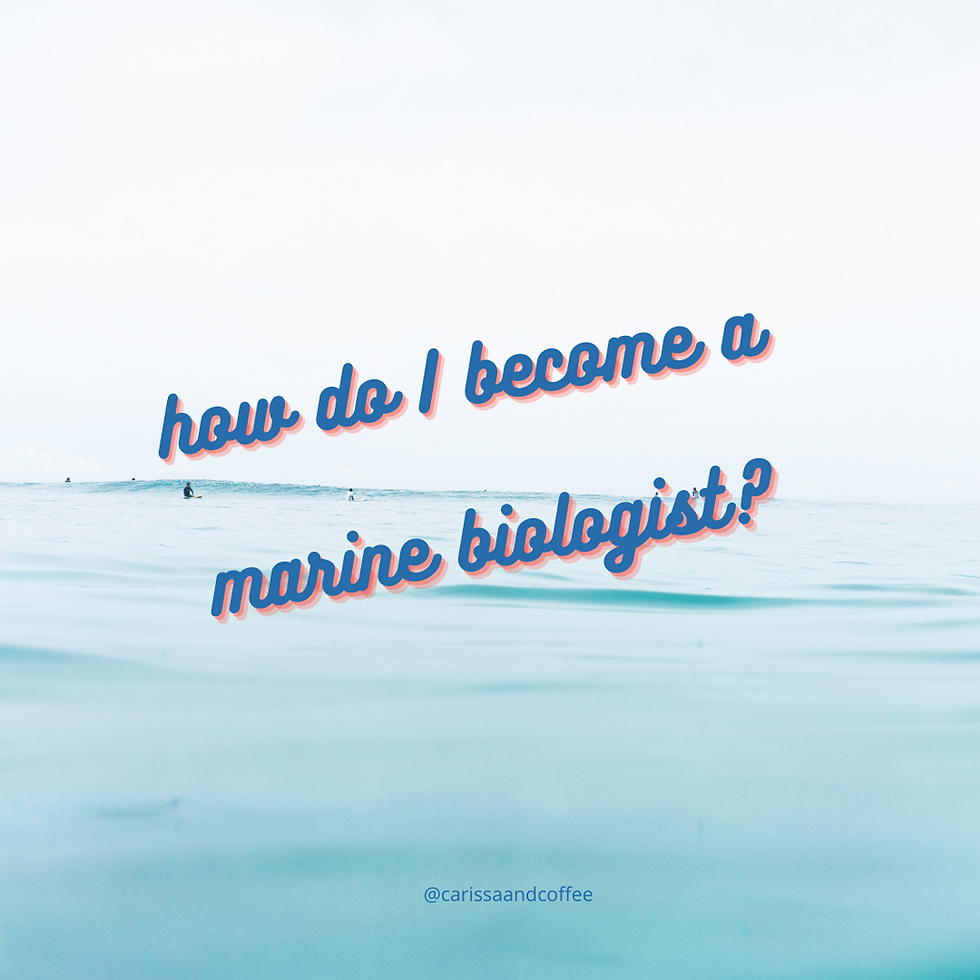Things to know if you want to work with whales
- Joe Giglio

- Feb 21, 2022
- 3 min read
Working with whales is one of the most popular marine biologist careers advertised to early scientists. I was initially inspired to become a marine biologist with the goal of working with whales, so I’ve compiled some vital background information that may be useful if that's also one of your goals in your marine biology career.

If you’re interested in becoming a marine biologist, you may have an interest in whales. After all, working with whales is one of the most population careers advertised to early scientists. Multiple members of The Conservationist Collective were initially inspired to become a marine biologist to work with whales, so I’ve compiled some tips and information that could be useful for all you aspiring marine biologists!
There are many options to specialize in!
The field of marine biologist could include hundreds or different job positions with many different specialties. Within the field of marine mammals, where are also many pathways! Careers can focus on acoustic behavior, whale behavior, tagging individual animals, understanding population dynamics, photo identification, public outreach, and education. Other professional whale scientists work with deceased animals to understand cause of death and determine environmental factors that may decrease whale populations into the future. Over time as we make new scientific discoveries, the field can open up to include different whale disciplines, too.
Where you are, geographically, matters!
If you want to work with a specific species of whale, that will be largely determined by where you are and the opportunities available in that area! Discover what you’re passionate about, and know that it may change many times. Positions working with species like orca, humpback, and dolphins are often competitive because they’ve been popularized by the media for decades. Opportunities to work with these charismatic animals may be fewer and far between, and require more effort to become involved in. Don’t give up on these animals if you are passionate about working with them, but realize you may need to be more creative in acquiring opportunities and relevant skills. If you are absolutely set on working with a popular species, start sourcing volunteer and internship opportunities early with the potential to lead to a job or future career.
Getting the right skillset requires unpaid work!
Whichever discipline you decide to pursue, it’s important to understand that unpaid work is a systemic part of gaining experience in marine biology and marine mammals. There is an unspecified amount of time you need to devote as a volunteer and/or unpaid intern in this field, which requires a level of privilege. You may need multiple unpaid positions to gain the right skills and build a professional network across the industry. Unpaid opportunities are common for early-career marine biologists, and in this case, they allow you to work with whales in some regard to get your foot in the door.
Be a go-getter!
Marine mammal and whale jobs also have a diverse array of responsibilities and job duties that rely on many different skillsets, so focus on developing them early! This may not have been conveyed in the movies you’ve seen, but it is definitely true. This career is science oriented with tasks involving paperwork, statistics, government funding, data analysis, programming, and photography. Depending on which aspect of whales you decide to pursue, you may deal in all of those areas or only a few.
There's a lot left to discover!
We need more marine biologists, conservationists, and those specializing in whales. Many whale species are still recovering from extensive whaling operations in the mid-twentieth century, and populations are fragile and susceptible to a changing environment. Whales are also facing threat from anthropogenic stressors like climate change, including marine debris, noise pollution, shipping traffic, and more. There is a lot left to uncover and many unanswered questions about whales!
Hopefully this post provided new information pertaining to the specifications of working with whales in the marine biology field. Use this guidance as inspiration to do further research on your own preferences and find opportunities to reach your dream career!
Here are some amazing opportunities and educational resources to help you get experiences and find opportunities to work with whales.
● Whale Scientists: Blog with Early Career Advice




Comments